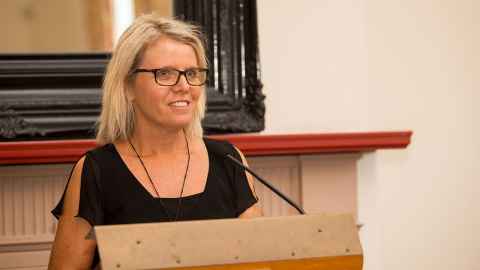Strengthening civil society more important than ever
12 February 2019
The Public Policy Institute can provide the up-to-date, well-researched information policy makers need to respond to large, complex issues.

Based at the University of Auckland, the Institute brings together researchers, practitioners and postgraduate students from across the University and the wider community to look at policies affecting everything from climate change to mental health.
The Institute recently hosted its first international conference, which attracted around 50 delegates from New Zealand, Australia, Canada and Singapore.
No change is possible in society without the help of outsiders — such as academics and the media — to influence and effect.
Presentations over the three-day conference covered topics like: how governments can forget important policy lessons because of the fast turnover of ministers and public servants at both central and local government level; the fundamental role of values in public policy and the power of interest groups; policy design as it relates to Indigenous people; and the development of innovative policy tools. The role of research in the policy process was also an overarching theme.
Hosted by Professor Curtin, a lively panel on how academics should go about building and maintaining relationships with policymakers included Professor Cindy Kiro, Pro Vice-Chancellor Māori at the University of Auckland and Professor Meredith Edwards, former Assistant Deputy Secretary in the Australian Department of the Prime Minister and Cabinet. Also on the panel were Dr Craig Stephens, a scientist committed to communicating evidence and Dr Penny Hagen from Auckland Council's Co-Design Lab.
Professor Kiro's presentation reflected her experience as a former Children's Commissioner and chair of the Welfare Expert Advisory Group (2018-2019). It included the reminder that changing political cycles provides opportunity as well as challenge "but legacy is the real goal". She said values need to be an integral part of policy making.
"No change is possible in society without the help of outsiders, such as academics and the media, to influence and effect."
The good life is breeding illness and we are barely scratching the surface of the implications of this. So we have to change, we need new ways to live.
Senior NZ Herald journalist Simon Wilson, a guest speaker at the opening reception, said that in a rapidly changing and frightening world, the public is genuinely interested in the policies that govern local decision-making in ways it never was before.
He said good journalists have a role to play in disseminating and evaluating those policies, thus "strengthening civil society".
He talked about the widespread nature of obesity, the return of diseases like rheumatism and rickets, the degradation of the natural world, the poor quality of water, the traffic gridlock, homelessness and the risk of "a collapse of social cohesion".
"The good life is breeding illness and we are barely scratching the surface of the implications of this. So we have to change, we need new ways to live. And rightly or wrongly, for better or for worse, councils have their fingers on the buttons of much of that change."
In contrast to the sometimes chilly relationship that can exist between Australia and New Zealand, lead conference organiser Associate Professor Tim Tenbensel (Faculty of Medical and Health Sciences) and Professor Curtin noted that a very positive outcome of the conference was continuing the collegial cross-Tasman policy conversations through a network of scholars that has existed for more than 20 years.
Media contact
Julianne Evans | Media adviser
DDI: 09 923 6589
Mob: 027 562 5868
Email: julianne.evans@auckland.ac.nz